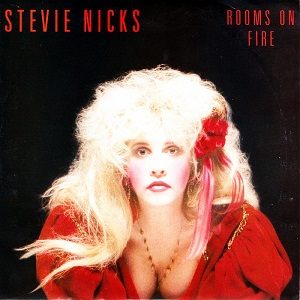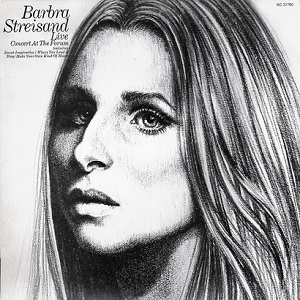
Paul Hayden Desser, who records as Hayden, is a Canadian singer-songwriter from Thornhill, Ontario.

"One Week" is a song by Canadian rock band Barenaked Ladies released as the first single from their 1998 album, Stunt. It was written by Ed Robertson, who is featured on the lead vocal of the rapped verses. Steven Page sings lead on the song's chorus, while the two co-lead the prechoruses in harmony. The song is notable for its significant number of pop culture references, and remains the band's best-known song in the United States, where it topped the Billboard Hot 100. Coincidentally, when the song reached No. 1 on the Billboard Hot 100, it remained in the top spot for one week.

"City of Blinding Lights" is a song by Irish rock band U2. It is the fifth track on their eleventh studio album, How to Dismantle an Atomic Bomb (2004), and was released as the album's fourth single on 6 June 2005. It was produced by Flood, with additional production by Chris Thomas and Jacknife Lee. The song reached number one in Spain, and peaked in the top ten in Canada, Ireland, the United Kingdom, and several other countries. The music video was shot at the General Motors Place in Vancouver, British Columbia, Canada.

"The Way We Were" is a song by American singer Barbra Streisand from her fifteenth studio album of the same name. It was released as the album's lead single on September 27, 1973, through Columbia Records. The 7" single was distributed in two different formats, with the standard edition featuring B-side track "What Are You Doing the Rest of Your Life?"; the Mexico release instead included an instrumental B-side. The song was written by Alan Bergman, Marilyn Bergman, and Marvin Hamlisch, while production was solely handled by Marty Paich. "The Way We Were" was specifically produced for the record, in addition to three other tracks, including her then-upcoming single "All in Love Is Fair" (1974).

"I Remember You" is a song by American heavy metal band Skid Row. It was released in November 1989 as the third single from their eponymous debut album. Composed as a power ballad, it was written by bandmates Rachel Bolan and Dave "the Snake" Sabo. It reached number six on the US Billboard Hot 100 and number 23 on the Mainstream Rock Tracks in early 1990. The song also charted at number two in New Zealand, number 12 in Ireland, number 14 in Canada, number 18 in Finland, and number 36 on the UK Singles Chart.

"Wishlist" is a song by the American rock band Pearl Jam. Written by vocalist Eddie Vedder, "Wishlist" was released on May 5, 1998, as the second single from the band's fifth studio album, Yield (1998). In the United States, the song peaked at number six on both the Billboard Mainstream Rock and Modern Rock Tracks charts. The song was included on Pearl Jam's 2004 greatest hits album, rearviewmirror .

"Rooms on Fire" is a song by American singer and songwriter Stevie Nicks from her fourth solo studio album The Other Side of the Mirror (1989). Written by Nicks and Rick Nowels, and produced by Rupert Hine, the song was released on April 24, 1989, by the Modern label, as the lead single from The Other Side of the Mirror. The 12-inch single was released in a limited-edition poster sleeve in certain territories.

"I Do" is a song written and performed by American singer-songwriter Lisa Loeb. Released on October 14, 1997, as the lead single from her second album, Firecracker (1997), "I Do" peaked at number 17 on the US Billboard Hot 100, becoming Loeb's second-highest charting single after her number-one debut single, "Stay " (1994). In Canada, "I Do" gave Loeb her second number-one hit, after "Stay". This song was her last top-20 single in both countries.

"Can't Stop This Thing We Started" is a song by Canadian singer-songwriter Bryan Adams. The song was written by Adams and Robert John "Mutt" Lange, and was released as the second single from Adams' sixth studio album, Waking Up the Neighbours (1991), in September 1991. The song peaked at number two on the US Billboard Hot 100 while topping the Canadian RPM Top Singles chart for three non-consecutive weeks. The track received two nominations at the Grammy Awards of 1992 for Best Rock Song and Best Rock Performance, Solo, winning neither. It served as the 2009 British Columbia Liberal Party campaign theme song.
"I Love the Way You Love Me" is a song recorded by American country music singer John Michael Montgomery from his debut album, Life's a Dance (1992). It was written by Victoria Shaw and Chuck Cannon, and released in March 1993 as the album's second single. The song reached the top of the US Billboard Hot Country Singles & Tracks chart. It became Montgomery's first number-one single and was named Song of the Year by the Academy of Country Music.

"If I Ever Lose My Faith in You" is a song by English singer-songwriter Sting, released on 1 February 1993 as the lead single from his fourth studio album, Ten Summoner's Tales (1993). The song reached number 17 on the US Billboard Hot 100 and the top 40 in several European countries. In Canada, the song reached number one, spending three weeks atop the RPM 100 Hit Tracks chart and finishing 1993 as Canada's fourth-most-successful single.

Live Concert at the Forum is the second live album by American singer Barbra Streisand, released physically on October 1, 1972, by Columbia Records. Produced by long-time collaborator Richard Perry, it was recorded at The Forum in Inglewood, part of Greater Los Angeles, on April 15, 1972, during Four for McGovern, a concert held in benefit for George McGovern's 1972 presidential campaign. A CD version of Live Concert at the Forum was released on September 6, 1989.

Artificial Horizon is a compilation album of remixed tracks by rock band U2. It was released exclusively to subscribing members of U2.com, replacing Medium, Rare & Remastered. The remix CD is of a similar vein to the band's 1995 release Melon: Remixes for Propaganda, which was also released exclusively to fans. A triple-vinyl edition was released to the general public until 14 May 2010; this version included an MP3 for the Snow Patrol remix of the song "Unknown Caller".

Rescue is the fifth studio album by the Canadian post-hardcore band Silverstein. It was released on 26 April 2011, the first full-length album to be released through Hopeless Records.

"Stay " is a song by rock band U2. It is the fifth track on their 1993 album, Zooropa, and was released as the album's third single on 22 November 1993. The song reached number one in Ireland and reached the top 10 in Australia, Iceland, the United Kingdom, and several other countries. The music video was shot in Berlin, Germany. The earliest incarnation of the song developed during sessions for the group's 1991 album Achtung Baby. It was written for and inspired by Frank Sinatra and bore his surname as the original working title. An alternative recording was used in the Wim Wenders film Faraway, So Close!.

"Didn't We" is a song recorded by Irish singer and actor Richard Harris for his debut studio album, A Tramp Shining (1968). It was written and produced by Jimmy Webb and originally served as the B-side to Harris' 1968 single "MacArthur Park". "Didn't We" was then distributed as the record's single by Dunhill Records, also in 1968. A traditional pop song, Harris sings about his life in the past. Commercially, it charted at lower positions of both the United States and Canada, and in the higher ranks of their Adult Contemporary component charts. Harris featured "Didn't We" on several of his greatest hits albums, including The Richard Harris Collection: His Greatest Performances from 1973. That same year, the song was reissued as a promotional single paired alongside his 1971 single "My Boy".

"All in Love Is Fair" is a song by American singer-songwriter Stevie Wonder recorded for his sixteenth studio album, Innervisions (1973). Written and produced by Wonder, it was released as a 7" single in Brazil in 1974. The song is a pop ballad with lyrics that describe the end of a relationship through the use of clichés. Critical reaction to the song has been varied: Matthew Greenwald of AllMusic wrote that it was among Wonder's "finest ballad statements", but Robert Christgau felt that the singer's performance was "immature". Wonder has included it on several of his greatest hits albums, including the most recent, 2005's The Complete Stevie Wonder.
















